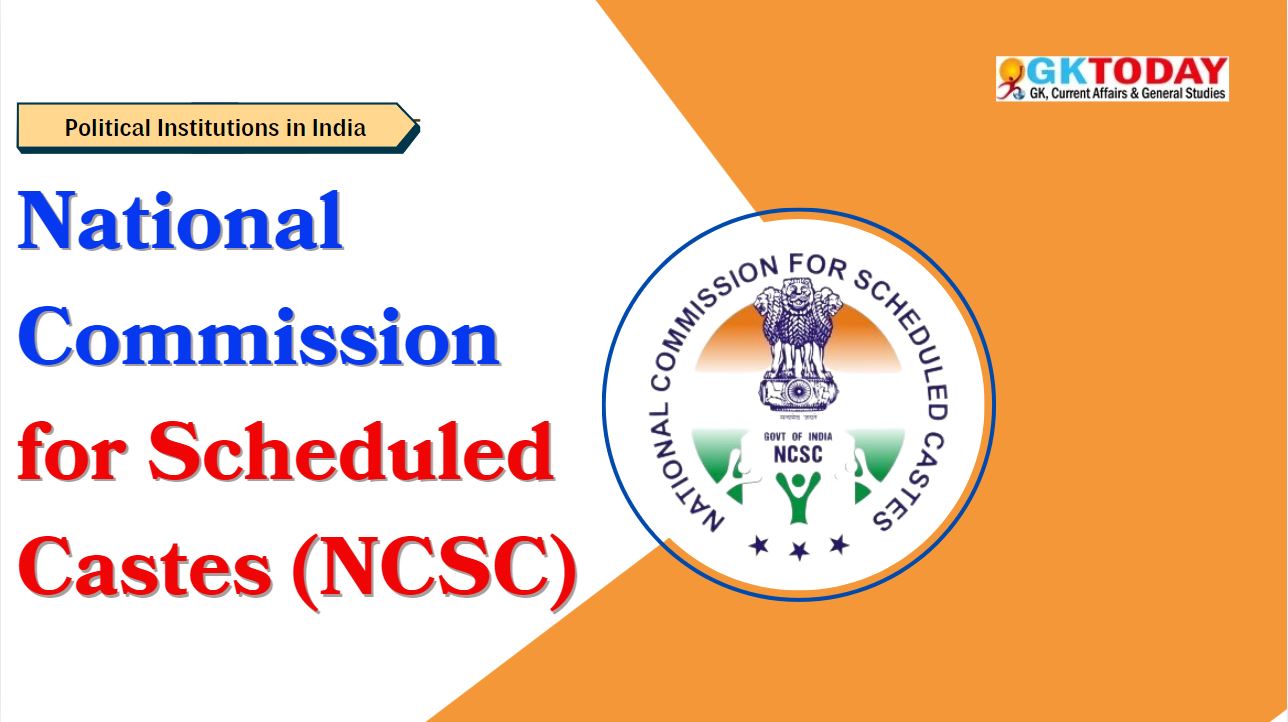National Commission for Scheduled Castes (NCSC) [UGC NTA NET Political Science Notes]
The National Commission for Scheduled Castes (NCSC) is a constitutional body in India established to protect and promote the rights and interests of Scheduled Castes (SCs). Formed on 19th February 2004, it operates under Article 338 of the Constitution of India. The NCSC plays a critical role in ensuring social justice and equality for SCs, addressing their grievances, and monitoring the implementation of laws and policies aimed at their welfare.
Establishment
The NCSC was established to address the needs and rights of SCs in India.
- Formation Date: 19th February 2004
- Legal Basis: Article 338 of the Constitution of India
- Objective: To investigate and monitor safeguards for SCs under the Constitution and laws.
Composition
The structure of the NCSC is defined by its composition.
- Chairperson: Appointed by the President of India.
- Members: Three other members, also appointed by the President.
- Tenure: The Chairperson and members serve for three years.
Functions
The NCSC performs several key functions to fulfil its mandate.
- Investigation: Inquires into complaints regarding deprivation of rights for SCs.
- Monitoring: Reviews the implementation of welfare laws and policies.
- Recommendations: Suggests measures for better enforcement of safeguards.
- Reports: Prepares annual reports for the President, which are then presented to Parliament.
Powers
The NCSC is endowed with specific powers to carry out its functions effectively.
- Summoning Authority: Can summon any person and examine them under oath.
- Document Production: Can require the production of any relevant document.
- Inquiry Visits: Has the authority to visit institutions or places for inquiries.
Jurisdiction
The jurisdiction of the NCSC spans across the entire nation.
- Geographical Coverage: Includes all states and Union territories of India.
- Focus Areas: Addresses issues related to SCs in education, employment, and social justice.
Significance
The NCSC holds importance in Indian society.
- Watchdog Role: Acts as a guardian for the rights of SCs.
- Policy Influence: Plays important role in formulating and implementing policies for SC upliftment.
- Social Justice: Aims to ensure equality and justice as enshrined in the Constitution.
Related Constitutional Provisions
Several constitutional provisions relate to the NCSC’s mandate.
- Article 46: Promotes educational and economic interests of SCs.
- Article 338A: Establishes provisions for the National Commission for Scheduled Tribes.
Recent Developments
The NCSC has been active in various initiatives.
- Status Updates: Regularly reports on the status of SCs across sectors.
- State Engagement: Works with state governments to improve welfare scheme implementation.
Challenges
The NCSC faces several challenges in its operations.
- Underreporting: Atrocities against SCs are often underreported.
- Awareness Needs: Greater awareness and education on rights and safeguards are required.
- Coordination: Needs collaboration with governmental and non-governmental organisations for outreach.





